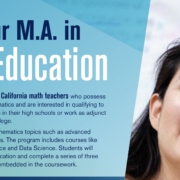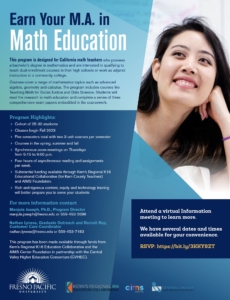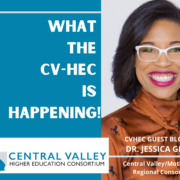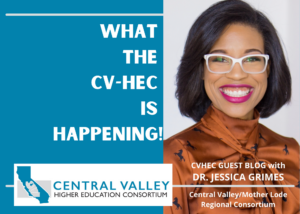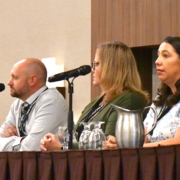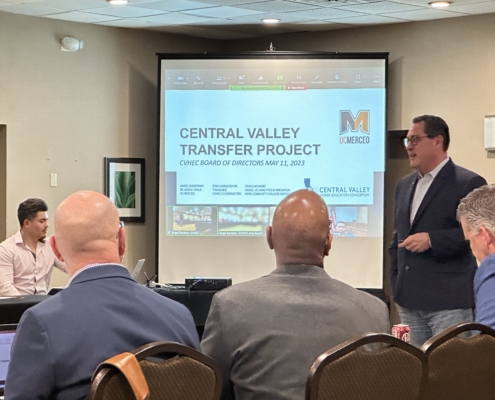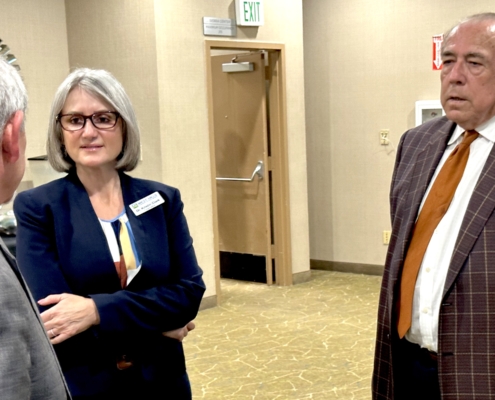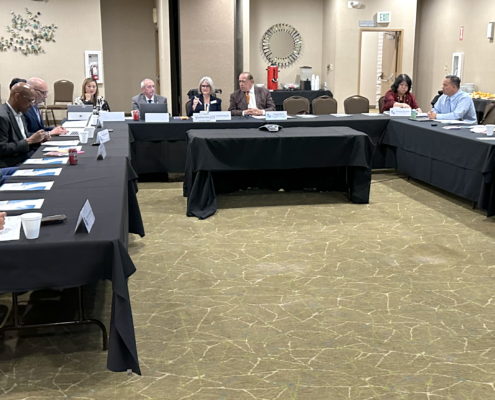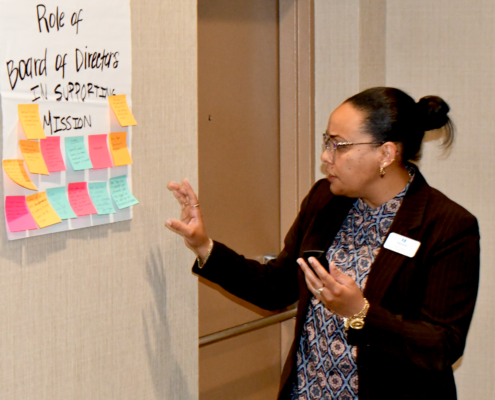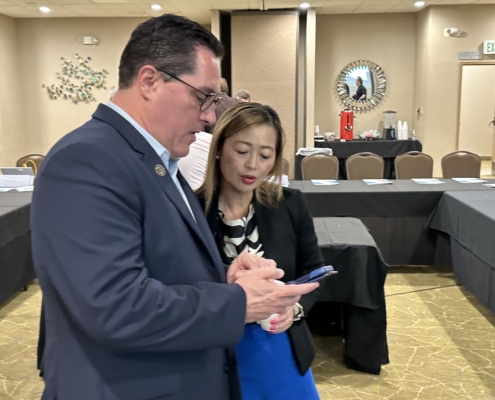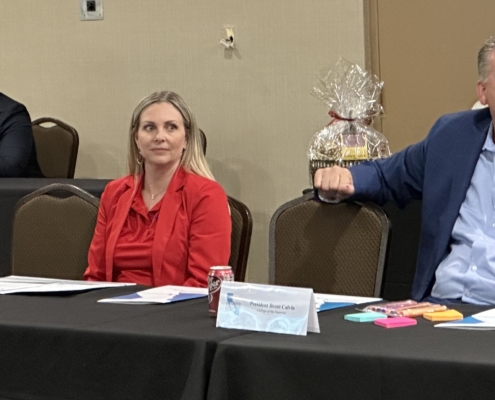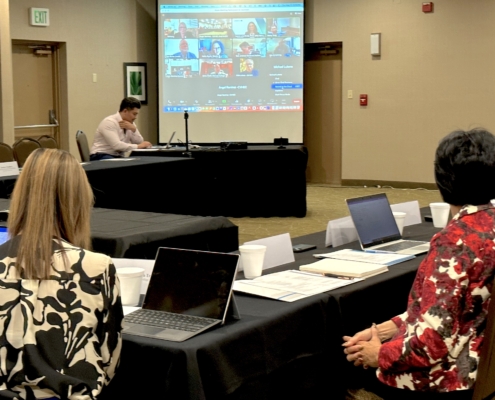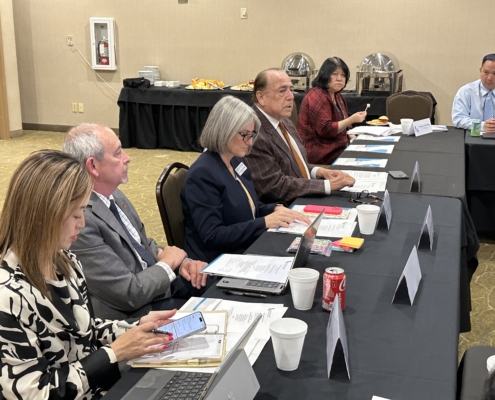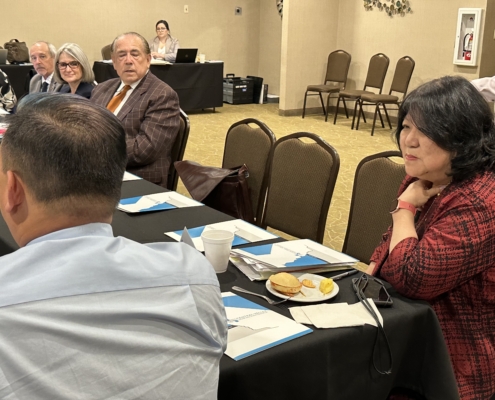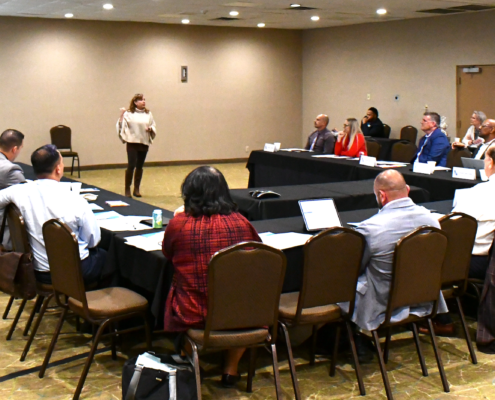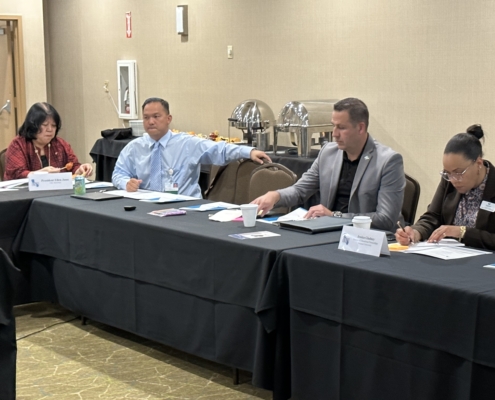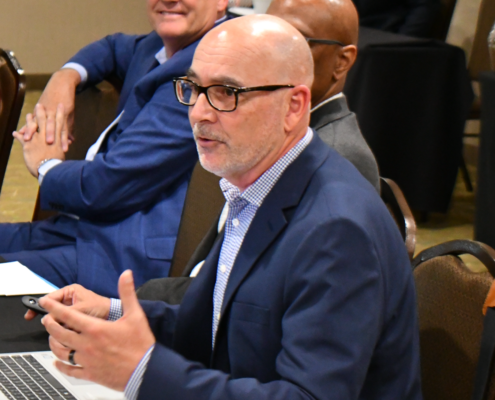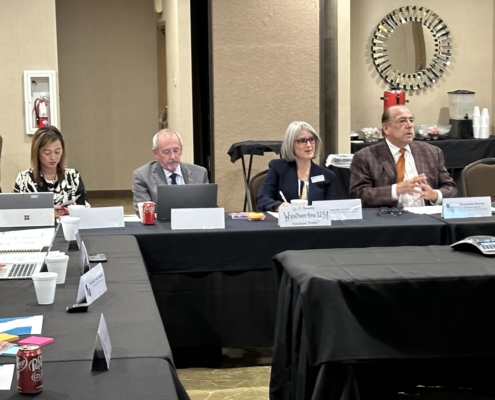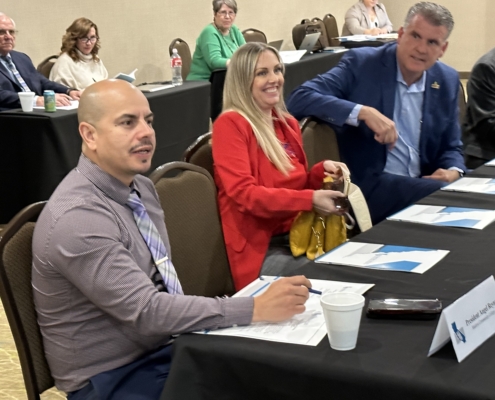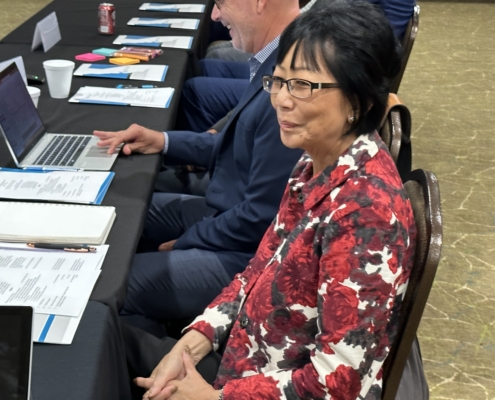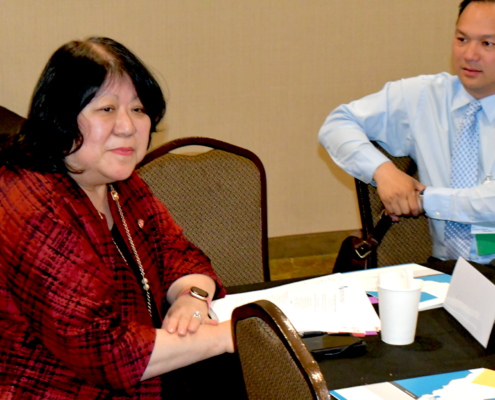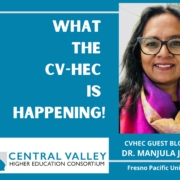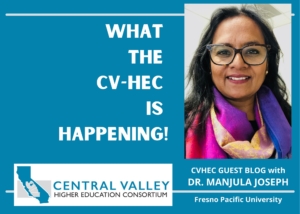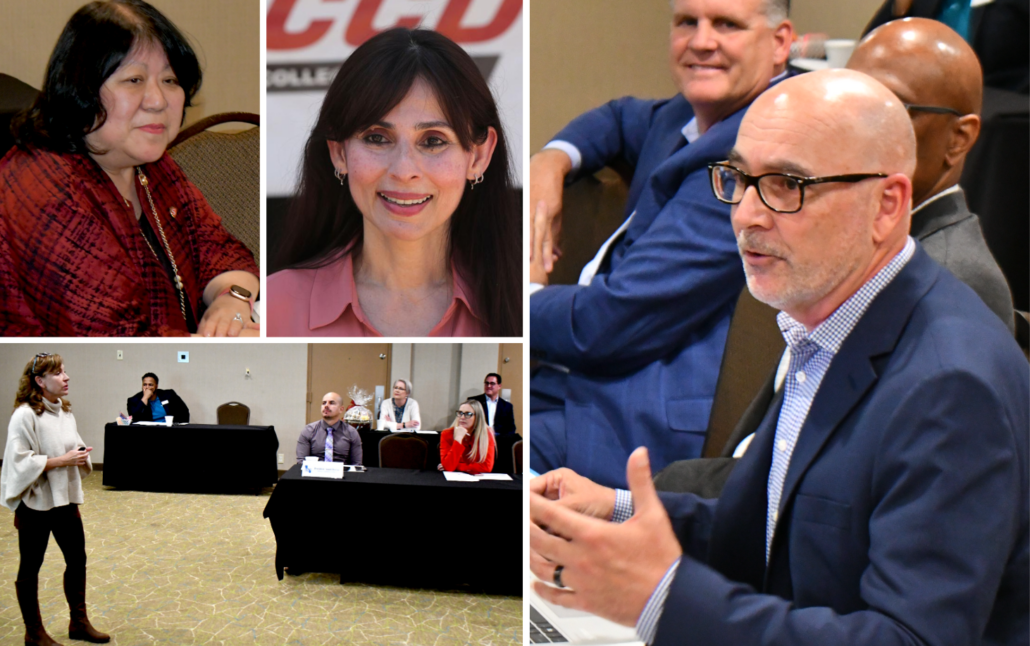
Spring board meeting features strategic planning,
Transfer Project/Math Bridge convergence
The Central Valley Higher Education Consortium’s new Zero Textbook Costs/Open Educational Resources Task Force will form in the coming months, West Hills College-Lemoore President James Preston reported to the CVHEC Board of Directors at its quarterly meeting May 11 in Fresno.
The action highlighted a full agenda of information for the board made up of the chancellors, presidents and campus directors of 28 institutions of higher education in the Central Valley’s nine-county region.
In addition to the ZTC Task Force, the agenda also included:
- Announcement of the development of a strategic plan in concert with Ed West that will drive the organization’s work for the next 3-5 years;
- A presentation outlining the convergence of two CVHEC projects: the Central Valley Transfer Project and Math Bridge;
- A welcome and farewell of incoming and departing members of the board, signifying transition among the valley’s higher education campus leaders.
Dr. Kristin Clark, CVHEC Board of Directors chair, welcomed the 14 members who attended the meeting at the Wyndham Inn and another 7 joining in virtually.
Dr. Juan Munoz, University of California, Merced chancellor who is the board treasurer, reported the consortium’s $2.9 million budget shows a carry-forward of $855,000.
Dr. Benjamín Durán, executive director, confirmed the annual CVHEC Higher Education Summit has been rescheduled for Oct. 19-20 and announced that the consortium’s Central Valley Dual Enrollment for Equity and Prosperity (CVDEEP) Task Force will convene in September.
But the three major presentations underscored the value the consortium provides the higher education community from Stockton to Bakersfield.
OER / ZTC Task Force Forming
For the ZTC project, CVHEC board members were asked to begin selecting a representative for their respective institutions to serve on the new local task force to strategize about pursuing state funding available for this movement that has led to significant savings for students as well as improved materials quality.
President James Preston, who serves on the statewide California Community Colleges ZTC Task Force, explained the project and funding streams as well as strategic follow up steps to his fellow CVHEC board members.
“The Zero-Textbook-Cost Degree Grant Program reduces the overall cost of education for students and decreases the time it takes students to complete degree and certificate programs,” he said. “We call it the ‘OER revolution’ because it really was kind of a revolution against the price gouging of textbooks. It has become an evolution of teaching and learning.”
He said funding is coming from the K-16 collaborative grant; statewide ZTC funding from the CCC Chancellors Office; and California State University or private university funding, noting that $90 million will be available for phase three.
“As a small college, West Hills College – Lemoore averages between 3,500 and 5,000 students and we have saved our students about $6.5 million since 2017,” Preston said. “We’ve got up to 15 ZTC degree pathways now with 70 percent using zero textbook cost and about another five percent that are low textbook cost.”
He outlined several pluses for the use of ZTC/OER including that “it’s a huge win for diversity and equity” and it allows for “culturally responsive relevant materials” that can be updated in a timely fashion.
CV Transfer Project and Math Bridge Overlap
In a presentation about the convergence of the Transfer and Math Bridge projects, the uniqueness of the CVHEC concept was recognized when Dr. James Zimmerman, UC Merced provost, and Dr. Lynn Cevallos, president of College Bridge, recounted the successes of their respective projects to date as well as some of the challenges faced.
Zimmerman noted that while the transfer project — in implementing its Program Mapper software — helps students plan out courses leading to successful community college admissions and then to four-year, they discovered the need for student planning to start much earlier in high school. In discussion with fellow CVHEC partner Cevallos, they realized CVHEC’s dual enrollment projects provide that missing piece.
“In our conversations about our good work, we’re thinking why in the world aren’t we trying to take these two silos and integrate them in a way that’s going to be best for your institutions and best for CVHEC’s mission,” Zimmerman told the board.
“So we’re calling it an evolution,” he said. “We’re hoping that we can move this forward. We’re excited about what’s been happening and just wanted to give you a sense of what we’re thinking.”
Cevallos said the Central Valley is ripe for this forward thinking due to more consistency among the CVHEC collaborators than in other areas of the state, noting that the consortium’s role in bringing together its community college members with school district partners provided the foundation for the College Bridge success that will extend to this merger.
Zimmerman said MOUs are in the works for state funding to carry the merger idea forward.
Duran told the board that “this melding represents two unique elements we don’t see around the state” — the collaboration between intersegmental faculty literally sitting down in a room together and the intersegmental institutional collaboration between its members.
“The University of California Merced is the only UC campus in the state that is collaborating with community colleges and CSU’s to create this model transfer project,” he said.
He reported that the CVHEC Transfer Project team is in communication with other UC campuses around the state as well as higher education institutions nation-wide interested in trying something similar.
“This is a unique organization that you folks have brought together,” Duran told the board.
Strategic Planning and Evaluation
The third presentation is designed to strengthen CVHEC strategies: virtual guests were Laura Lara-Brady and Kathy Booth of West Ed which CVHEC has contracted to conduct an evaluation that will help develop a strategic plan to drive the organization’s work for the next 3-5 years.
Ed West is presently surveying board members and stakeholders to establish strategic themes and follow up interviews. The results will be used by the CVHEC board’s executive committee at its working meeting in September to propose a strategic plan for full consideration at the board’s fall meeting in October, Duran reported.
One example of some of the comments shared in this preliminary discussion touched on the CVHEC’s uniqueness in bringing together the four segments of California’s higher education system to speak as a collective voice for the Central Valley.
“That’s very unusual. We’re kind of a Unicorn in that respect, we’ve heard that said several times,” said Dr. Clark. “And I come from outside the Central Valley. I know that people do not play nice together in other pockets. I mean you can’t even talk to the high school down the street much less talk to regional partners like this so I think that we get a lot of attention because we’ve made it work and people want to replicate that.
Transitions
In the transitions portion of the board meeting, four new campus CEOs were welcomed to the board: President Kim Armstrong, Clovis Community College; Interim President Steve Watkins, Bakersfield College; Interim President Chad Redwing, Modesto Junior College; and Interim Chancellor Tom Burke, Kern Community College District.
Two board members were bid farewell: Dr. Ellen Junn, whose retirement as Stan State President is effective August 1; and Dr. Sonya Christian, Kern Community College District chancellor who left that position April 30 to become chancellor of the CCC effective June 1.
Chancellor Christian was unable to attend her final meeting but she plans to reconnect at the summit in October when she returns in her new role.
President Junn attended, returning to the city where she served as provost at Fresno State prior to Stan State. She echoed the satisfaction of serving with “remarkable” valley CEO colleagues noting “it is unusual for college leaders to have so much camaraderie” as the CVHEC board enjoys. She will be honored at Warrior Tribute for President Junn June 9.
The next CVHEC board meeting will be Oct. 19, the day before the summit.

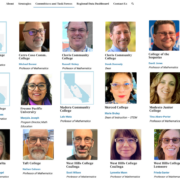
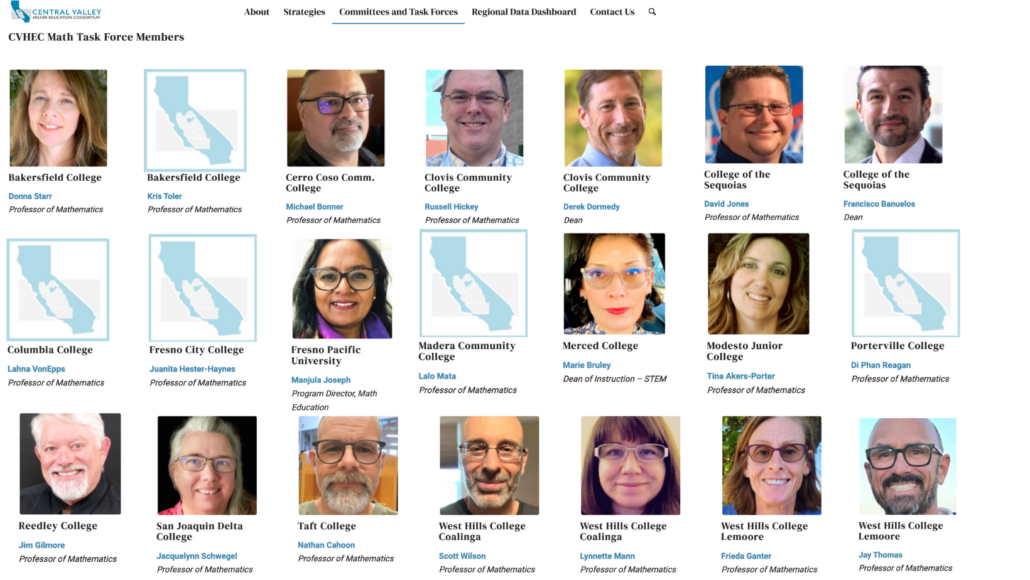
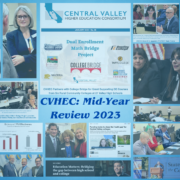
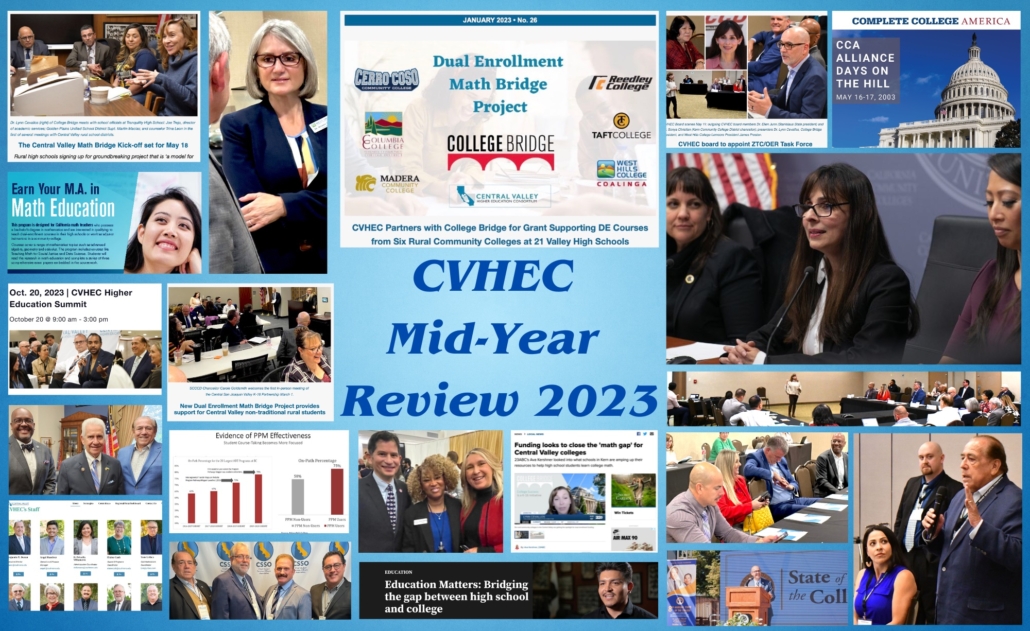
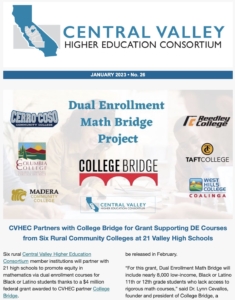
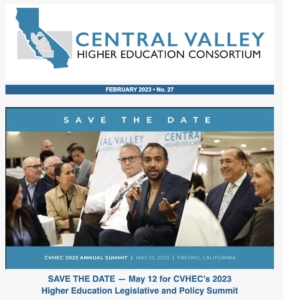
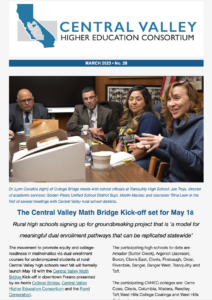
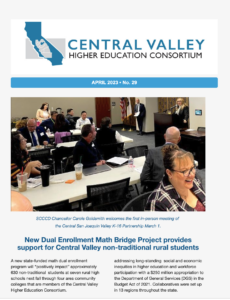
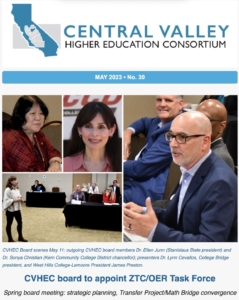
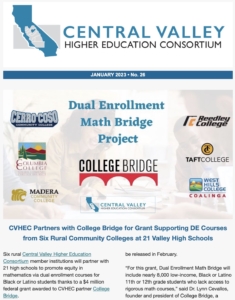
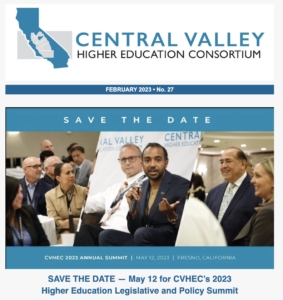
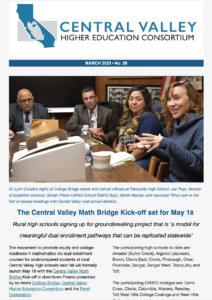
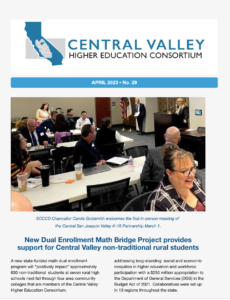
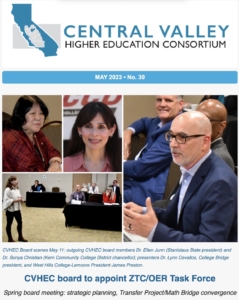
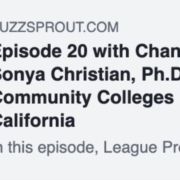

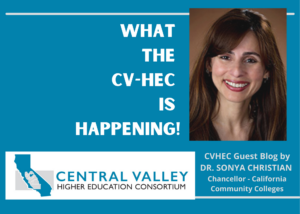
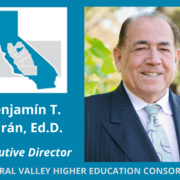
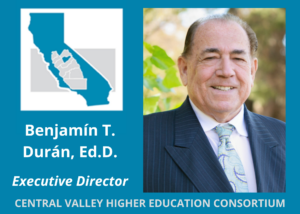 And, as the country was reeling from that monumental decision, SCOTUS took further action to declare unconstitutional President Biden’s efforts to bring some relief to those holding student loans.
And, as the country was reeling from that monumental decision, SCOTUS took further action to declare unconstitutional President Biden’s efforts to bring some relief to those holding student loans.